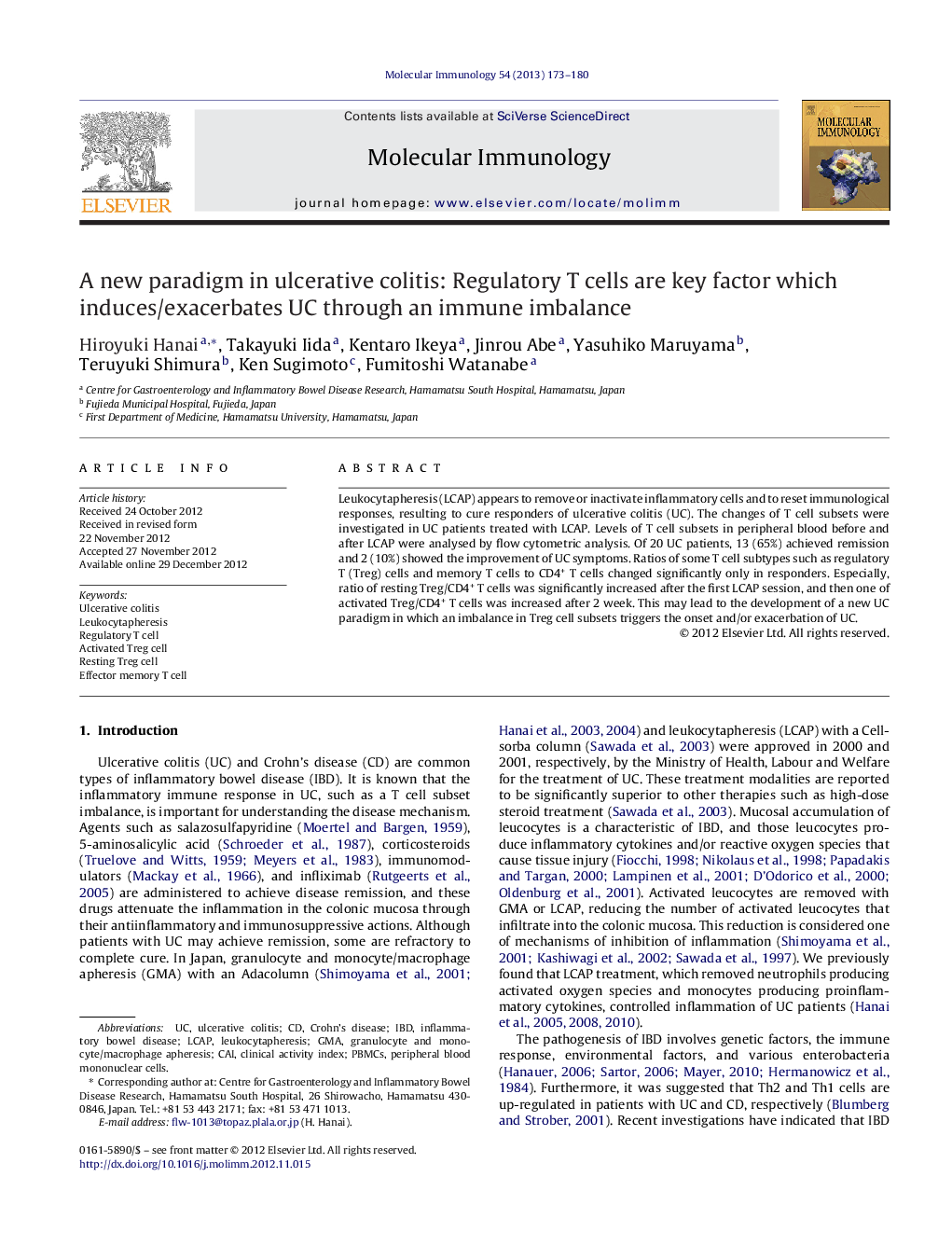| Article ID | Journal | Published Year | Pages | File Type |
|---|---|---|---|---|
| 2831159 | Molecular Immunology | 2013 | 8 Pages |
Leukocytapheresis (LCAP) appears to remove or inactivate inflammatory cells and to reset immunological responses, resulting to cure responders of ulcerative colitis (UC). The changes of T cell subsets were investigated in UC patients treated with LCAP. Levels of T cell subsets in peripheral blood before and after LCAP were analysed by flow cytometric analysis. Of 20 UC patients, 13 (65%) achieved remission and 2 (10%) showed the improvement of UC symptoms. Ratios of some T cell subtypes such as regulatory T (Treg) cells and memory T cells to CD4+ T cells changed significantly only in responders. Especially, ratio of resting Treg/CD4+ T cells was significantly increased after the first LCAP session, and then one of activated Treg/CD4+ T cells was increased after 2 week. This may lead to the development of a new UC paradigm in which an imbalance in Treg cell subsets triggers the onset and/or exacerbation of UC.
► In patients with ulcerative colitis, the rate of resting Treg cells was significantly increased after the first LCAP treatment. ► The rate of activated Treg cells was significantly higher than that of resting Treg cells after the fifth treatment. ► The balance between resting/activated Treg cells and inflammatory T cells was normalized after induction remission.
